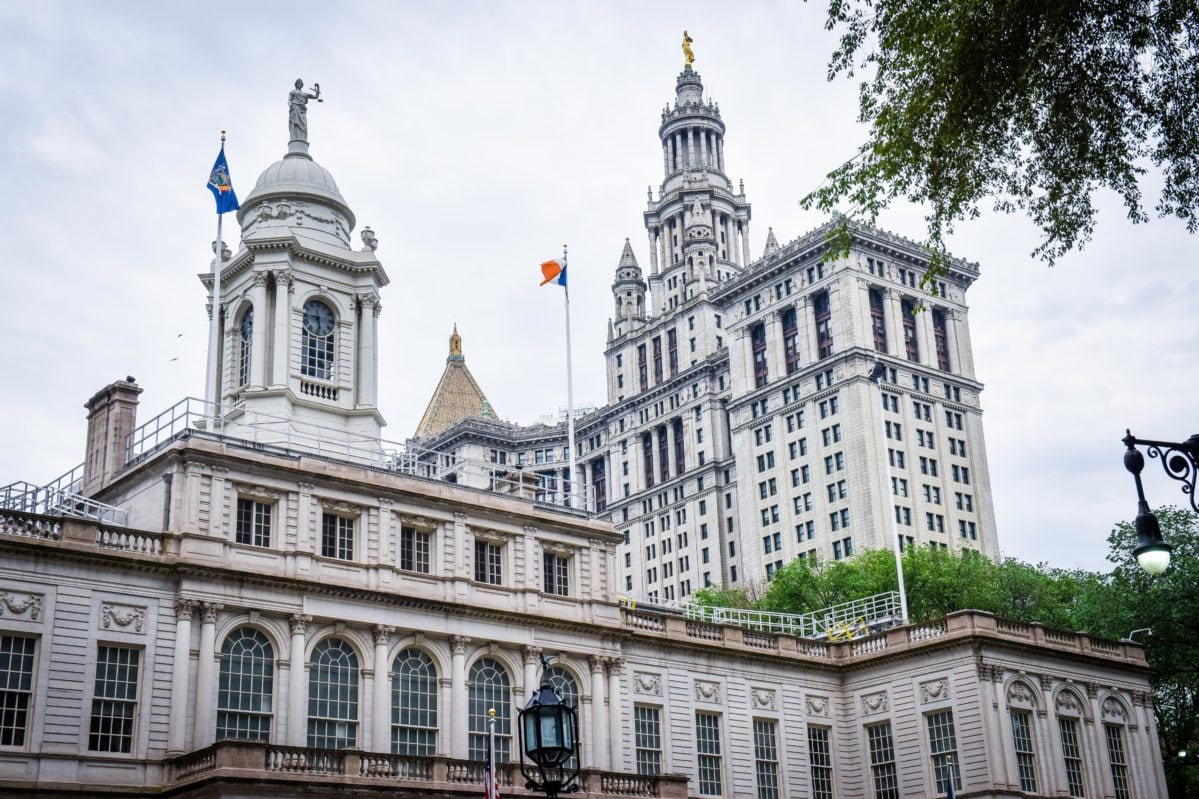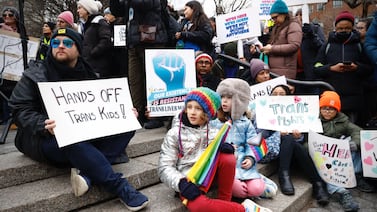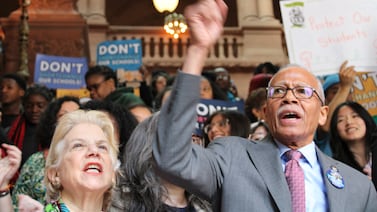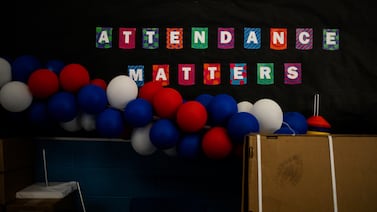More than $370 million in cuts this year to schools across the five boroughs will stand after an appeals court ruled Tuesday that New York City lawmakers won’t have to vote again on the education department budget.
The ruling overturns a lower court’s high-profile decision asking for a budget redo because of a procedural violation.
While the appeals court judges found that city officials violated state law in how they passed the budget for this fiscal year, they also decided that requiring a new budget vote would be unsettling to “the DOE’s operations and be detrimental to students and teachers alike.”
The lawsuit’s plaintiffs were disappointed in the ruling.
“Without a restored budget, my daughters will continue to lack art and music in their schools, and the school at which I worked for 13+ years will continue to lack a full time music instructor,” Paul Trust, a teacher and one of the plaintiffs, said in a statement. “If there is a silver lining, I am hoping that going forward more attention will be given to the school budget process in general and the effect future budgets have on individual school programming.”
In a statement, schools Chancellor David Banks said he was pleased with the decision.
“We will continue to manage our school budgets equitably and efficiently to uplift every child in NYC Public Schools,” Banks said.
The original lawsuit gained significant attention over the summer after the City Council overwhelmingly voted to pass the city’s budget in June, which included Mayor Eric Adams’ proposed cuts to three-quarters of schools because of projected declining student enrollment. But after outrage from families and educators, a majority of City Council members pressed the Adams administration to restore those dollars to schools.
The lawsuit was filed in July by Trust, another teacher and two parents, and then made its way through the court system.
The court’s Tuesday decision came in response to an appeal filed by lawyers representing the city. Those lawyers challenged a lower court’s August decision, which found the city had violated state law and ordered both Adams and the City Council to reconsider the education budget. That judge said, in the meantime, the city would have to revert to education spending levels from last fiscal year, which were about $1 billion larger than this year due to an influx of federal COVID relief dollars.
But shortly after that decision, an appeals court issued a stay on the ruling, allowing the cuts to move forward as the appeals process played out.
Since City Council members had shown considerable support for restoring school coffers, they were largely expected to push for an increase to education department spending if the court ordered them to redo the budget.
Laura Barbieri, the attorney representing the parents and teachers who filed the lawsuit, said her clients will decide after Thanksgiving whether to appeal the ruling.
The court’s reasoning is “just nonsense,” Barbieri said.
“I think that it would not have been disruptive to teachers and students,” Barbieri said. “They would have benefited tremendously if the City Council would have revoted, and it was simply the DOE that may have been disrupted, and that’s a different kind of disruption — I think that’s a more bureaucratic disruption.”
The original lawsuit claimed that schools Chancellor David Banks improperly bypassed a vote by the city’s Panel for Educational Policy, or PEP, on the education department’s budget before passing it up the chain. The panel is a largely mayoral appointed board that votes on contracts and other policies, such as school closures.
Banks used an “emergency declaration” to bypass the panel’s vote, saying there wouldn’t be time for their vote and a public hearing before city officials were set to vote on the budget. Previous chancellors used that declaration at least 11 times over the past 13 years.
During the appeals court hearing in September, multiple justices on the five-judge panel seemed critical of Banks using the emergency declaration. In the final decision, the justices wrote that the DOE “is simply avoiding its statutory obligations” by repeatedly issuing emergency declarations, skirting a process meant to instill “maximum community involvement and transparency.”
At the same time, they were skeptical that canceling the current budget was a good solution. During the hearing, one justice likened that remedy to tying “a tourniquet around your neck to stop a nosebleed.”
Their decision noted that when the PEP eventually voted on the education department budget, they passed it — an argument the city made.
It’s likely that many school leaders would have appreciated a further boost in funding, though it gets trickier to hire staff or create new programming as the school year progresses. The city recently decided to hold schools harmless from the “mid-year adjustment,” where schools can lose money if they enroll fewer students than expected by Oct. 31.
Over the course of the lawsuit, many school leaders felt they were in limbo. Some previously told Chalkbeat that they would consider hiring more staff or boosting extracurriculars for students if more money came through.
Reema Amin is a reporter covering New York City schools with a focus on state policy and English language learners. Contact Reema at ramin@chalkbeat.org.







